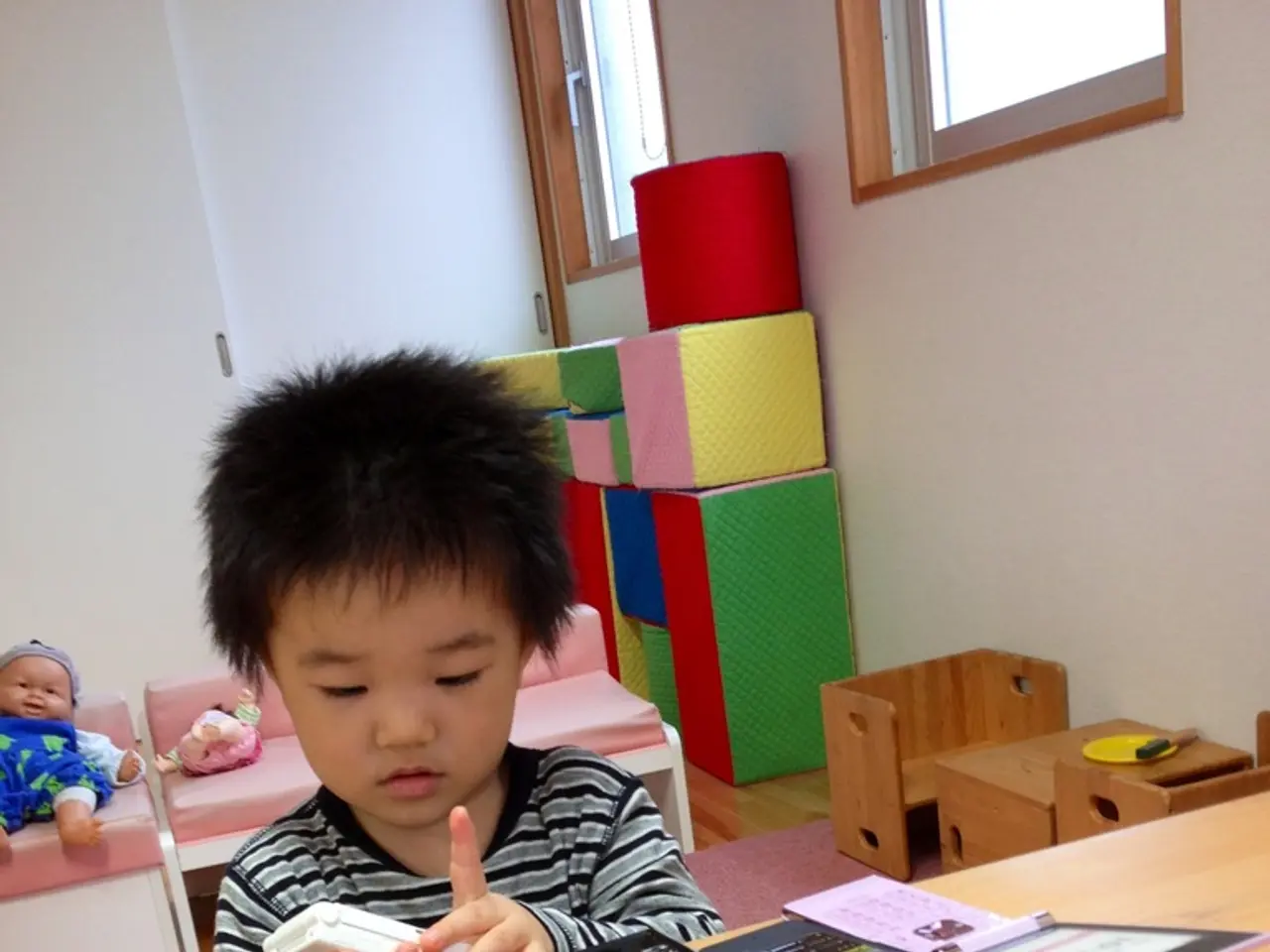Parental Concerns about Child's Cell Phone Usage: Solutions Provided
In a striking revelation, a survey has found that 61% of participants report physical inactivity among children with smartphones, and 64% have observed negative impacts on sleep. These findings are just the tip of the iceberg when it comes to the potential dangers of children's smartphone use.
Experts such as Chris McKenna, who advocates for delaying the introduction of smartphones until children are ready, and Laura Kastner, Ph.D., who shares signs that a child may not be ready for a phone, are raising concerns about the impact of smartphones on children's mental, social, cognitive, and physical health.
The common negative impacts of children's smartphone use include increased anxiety and depression, higher rates of eating disorders and self-harm, plummeting self-esteem, feelings of isolation, reduced sleep quality, lower critical thinking and concentration, less reading, outdoor time, in-person socializing, and independence, and physical health risks linked to cardiometabolic health.
Despite a lack of specific regret percentages by country, these widespread negative outcomes suggest why many parents may experience regret or concern. Research and expert commentary highlight significant concerns and reported negative impacts of children's smartphone use common across the U.K., Germany, India, Australia, and the United States.
Jonathan Haidt’s influential 2024 book, The Anxious Generation, has been pivotal in raising awareness and influencing discussions on smartphone impacts among educators and parents, particularly in the U.S. and comparable Western countries.
Erin Loechner, author of "The Opt-Out Family: How to Give Your Kids What Technology Can't," is speaking out, giving parents permission and validation to consider other options beyond technology for their child's valuable time and attention. Loechner recommends engaging kids in their own research, conversations, and decision-making around the right time to get a phone.
Advocacy groups such as Wait Until 8th and authors like Jonathan Haidt, who wrote "The Anxious Generation," are pushing back on the idea that phones are just a mainstream part of children's and teens' lives. Lawmakers in places like Iowa are proposing bans on cell phones in K-12 classrooms, a movement that's gaining hold nationwide.
Laura Kastner advises parents to explain the issue and the new plan, stating, "We've learned more about how phones affect our brains and relationships, and we want to make sure we're all using tech in ways that support our health and happiness." She also suggests framing a family-wide tech reset as a non-guilt-inducing family-wide reset, avoiding "shame and blame."
Loechner adds that the "tides are turning," and it's no longer difficult to find others to join the movement of limiting tech for kids. She recommends building a social circle willing to navigate a low-tech lifestyle with your family.
In 2024, 54% of parents across the U.K., Germany, India, Australia, and the United States reported regret for giving their child a smartphone.
For more resources on kids and tech, check out articles on protecting a child's brain from daily screen time, banning cell phones in schools, no-frills smartphone alternatives for kids, and a parent's age-by-age guide to screen time.
- Experts like Chris McKenna and Laura Kastner are expressing concerns about the impact of smartphones on children's mental, social, cognitive, and physical health.
- The negative impacts of children's smartphone use include increased anxiety and depression, lower critical thinking and concentration, reduced sleep quality, and physical health risks.
- Some common signs that a child may not be ready for a smartphone include impulsivity, lack of self-control, and inability to focus.
- Research highlights significant concerns and reported negative impacts of children's smartphone use in countries like the U.K., Germany, India, Australia, and the United States.
- The 2024 book, The Anxious Generation, by Jonathan Haidt, has been influential in raising awareness about smartphone impacts on children's mental health.
- Erin Loechner, author of "The Opt-Out Family," encourages parents to consider other options for their child's time and attention beyond just technology.
- Advocacy groups like Wait Until 8th and authors such as Jonathan Haidt are challenging the notion that phones are a standard aspect of children's and teens' lives.
- Lawmakers in places like Iowa are advocating for bans on cell phones in K-12 classrooms, a movement gaining traction nationwide.
- In 2024, 54% of parents felt regret for giving their child a smartphone, indicating widespread concerns about its effects. For more resources on kids and tech, consider articles on protecting a child's brain from daily screen time, banning cell phones in schools, no-frills smartphone alternatives for kids, and a parent's guide to age-appropriate screen time.




